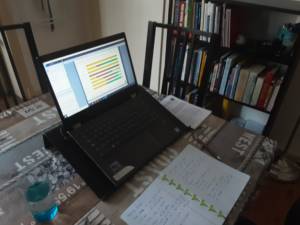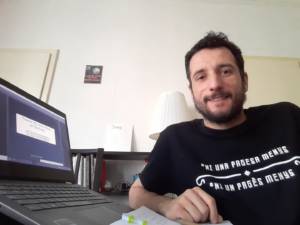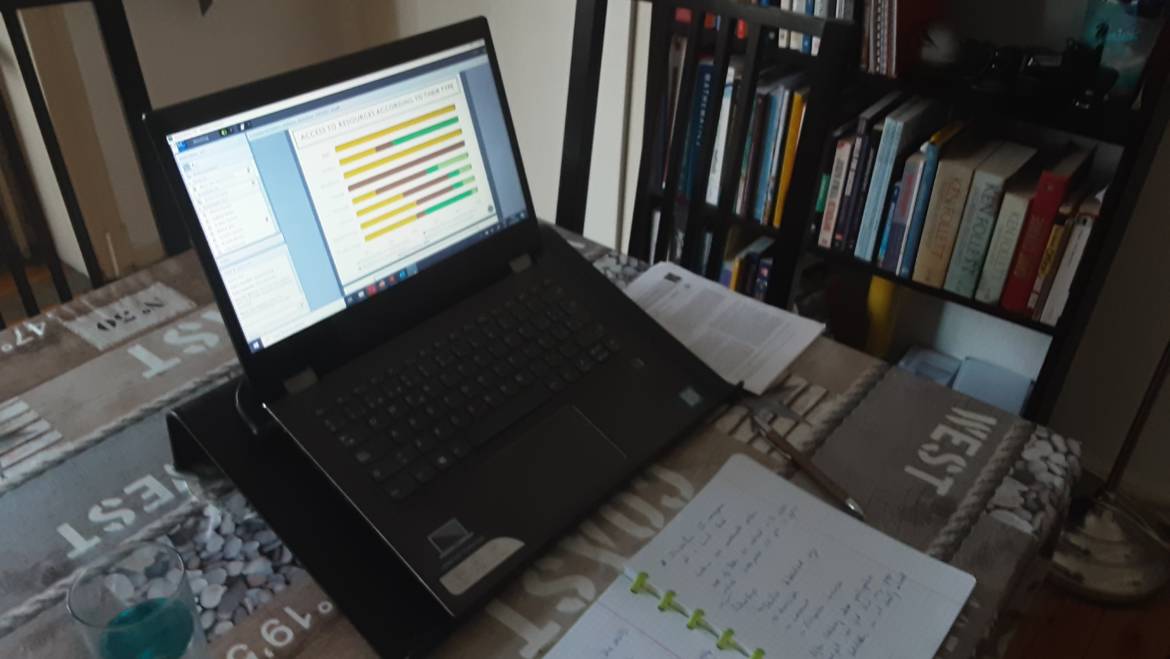
By Josep Pinyol and Kevin van Langen
The latest Edition of the International Conference on Innovation and Circular Economy[1] took place from the 25th to the 27th of March 2020. The conference was initially planned at the University of Santiago de Compostela, in Spain, but it was instead organized online to avoid unnecessary travels and to prevent the further spreading of COVID-19.
In this conference, we, Kevin van Langen and Josep Pinyol, presented different pieces of research related to the circular economy and its implementation as Early Stage Researchers of the ReTraCE consortium. These presentations allowed us to present our preliminary results, to make outreach of our research, gain valuable feedback from experts in the circular economy field, and to expand our network by obtaining new contacts and meeting people who will be relevant for our research.
Kevin van Langen did a presentation about the Dutch Green Deals policy instrument. The policy instrument was a success in achieving many public-private partnerships to foster green innovation in the Netherlands, but a critical academic review of the instrument had not yet been done before.
Josep Pinyol did a presentation analysing the discourse and the narratives implicit on the Galician Strategy of the Circular Economy. This research, using critical discourse analysis, analysed the strategy of the Government of Galicia to transition towards a circular economy and the content of its narrative.

The organization of the event made it possible for the conference to take place online. This is not a format with which we are familiarised, the use of an online platform allows us to present from the safety of our places, this format allowed the conference to be economically cheaper to organize and to participate, as we are avoiding travelling and hotels. This made it a more environmentally friendly event, as many of the attendants are located in different countries within the EU, such as Greece or Belgium in our cases.
This conference provided us with a new experience of attending online events, an experience that we may repeat the coming weeks and months for other planned events. Will this be a new paradigm for academic activities? Will online activities become part of a new more sustainable practice, from the environmental and economic dimension, for academia? How will we network, have a chance to socialize and effectively network with relevant academics in an online context? Only time will tell.
[1] https://rrien.univ-littoral.fr/spring-of-innovation-2020/
AUTHORS’ INFORMATION
Josep Pinyol is an ESR fellow at the Academy of Business and Society (ABIS) and a PhD candidate at the University of Exeter. Prior to his PhD, Josep worked as a junior researcher for the Copernicus Institute of Sustainable development at Universiteit Utrecht, performing research on the governance conditions to implement recycled water schemes in urban areas as a strategy to adapt to climate change.
Kevin van Langen is an ESR working at Olympia Electronics in Greece while being enrolled as a PhD with the Università degli Studi di Napoli Parthenope in Italy. Before his PhD he first did a Bachelor’s in International Business Administration in the Netherlands and Greece, followed by a master’s in Innovation Management with the Universities of Trento and Sant’Anna. He wrote his master thesis on open innovation initiatives by the Dutch government. Working as a consultant in the Philippines, he developed an interest in saving the environment and started pursuing a career in this field, culminating in taking this ESR position.

